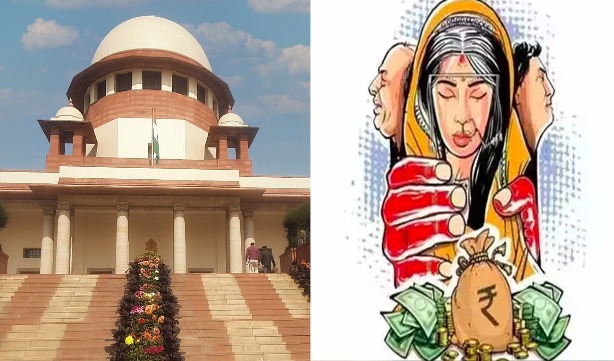
The Supreme Court recently held that if a wife died in her matrimonial home under unusual circumstances within seven years of marriage will not suffice to convict the husband for dowry death.
According to a division bench of Justice Abhay S Oka and Justice Rajesh Bindal, “Mere death of the deceased being unnatural in the matrimonial home within seven years of marriage will not be sufficient to convict the accused under Section 304B and 498A IPC.”
The bench was hearing the husband’s appeal against the Uttarakhand High Court’s decision upholding the trial court’s conviction.
The wife died while living in her matrimonial home two years into the marriage. On June 24, 1995, the father of the deceased filed a complaint against the deceased’s husband and in-laws for the murder of his daughter.
According to the FIR filed in this case, the deceased was killed because she did not fulfill her in-laws’ demands for a motorbike and land as dowry.
The deceased’s father also stated that a day before her death, she was beaten and strangled to death by her husband and in-laws. It was also claimed that the accused cremated the deceased’s body without informing her parents.
For the aforementioned offences, the trial court convicted the deceased’s husband, brother-in-law, and mother-in-law. However, on appeal, the High Court acquitted the brother-in-law and mother-in-law while upholding the husband’s conviction. Furthermore, the appellant husband’s sentence of ten years in prison under Section 304B of the IPC was reduced to seven years.
The husband appealed the verdict to the Supreme Court.
The bench noted that because the appellant-husband was convicted under Sections 304B and 498A of the Indian Penal Code, there is a presumption under Section 113B of the Indian Evidence Act 1872 regarding dowry death of the deceased within seven years of marriage.
In this regard, the bench stated that in order to commit dowry death, the deceased must have been subjected to cruelty or harassment shortly before death. However, while reviewing the deceased’s father’s statement, the Court noted that, aside from instances of dowry demands in the early months of marriage, there was nothing in the statement to indicate that any such demand was made immediately before her death.
The bench concluded that the prosecution’s evidence did not meet the requirements of either Section 113-B of the Indian Evidence Act of 1872 or Section 304B of the IPC to invoke the presumption. Furthermore, the conviction under Section 498-A cannot be upheld because there is no proof of cruelty.
As a result, the appellant-husband has been acquitted by the court.




